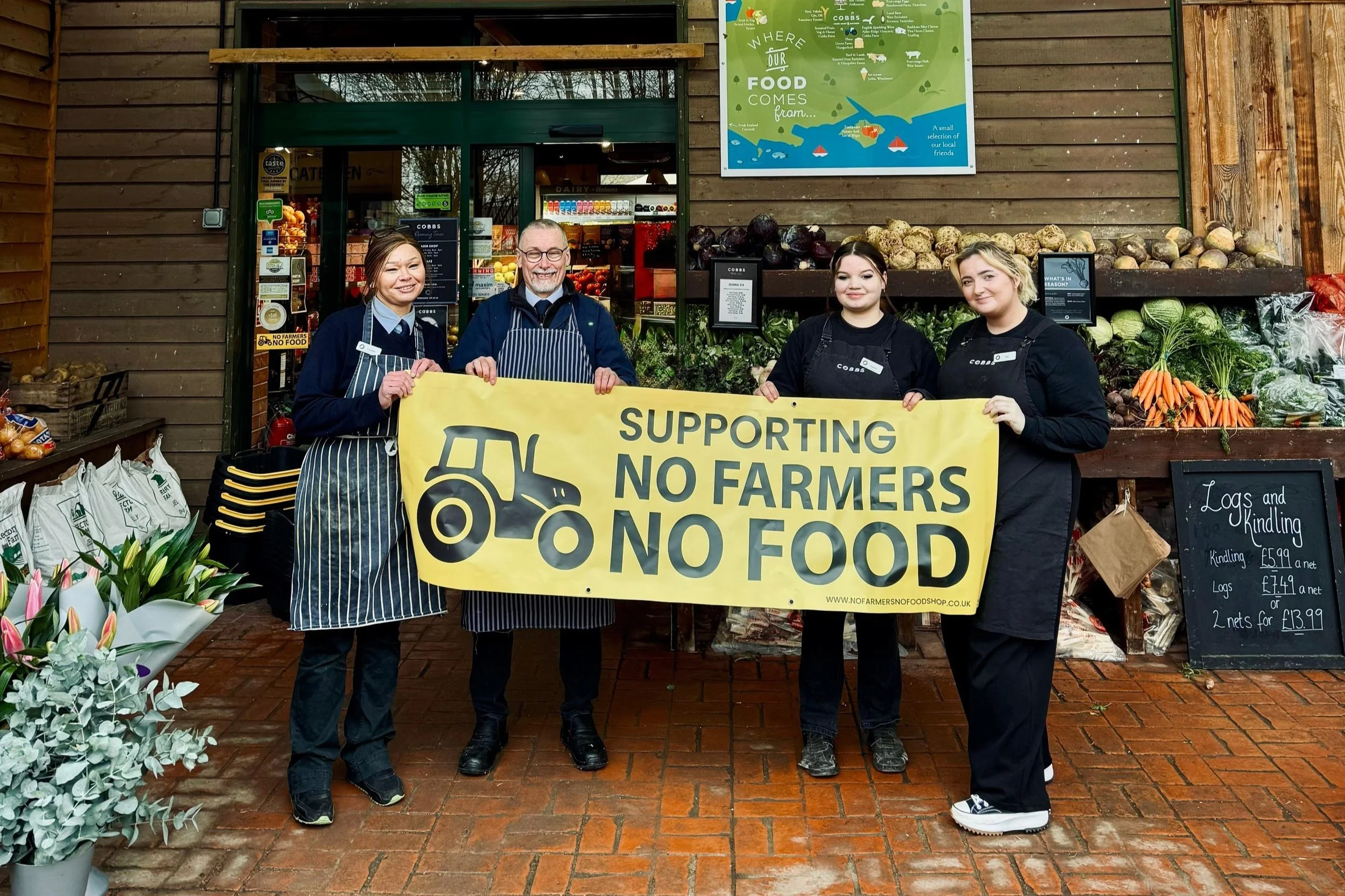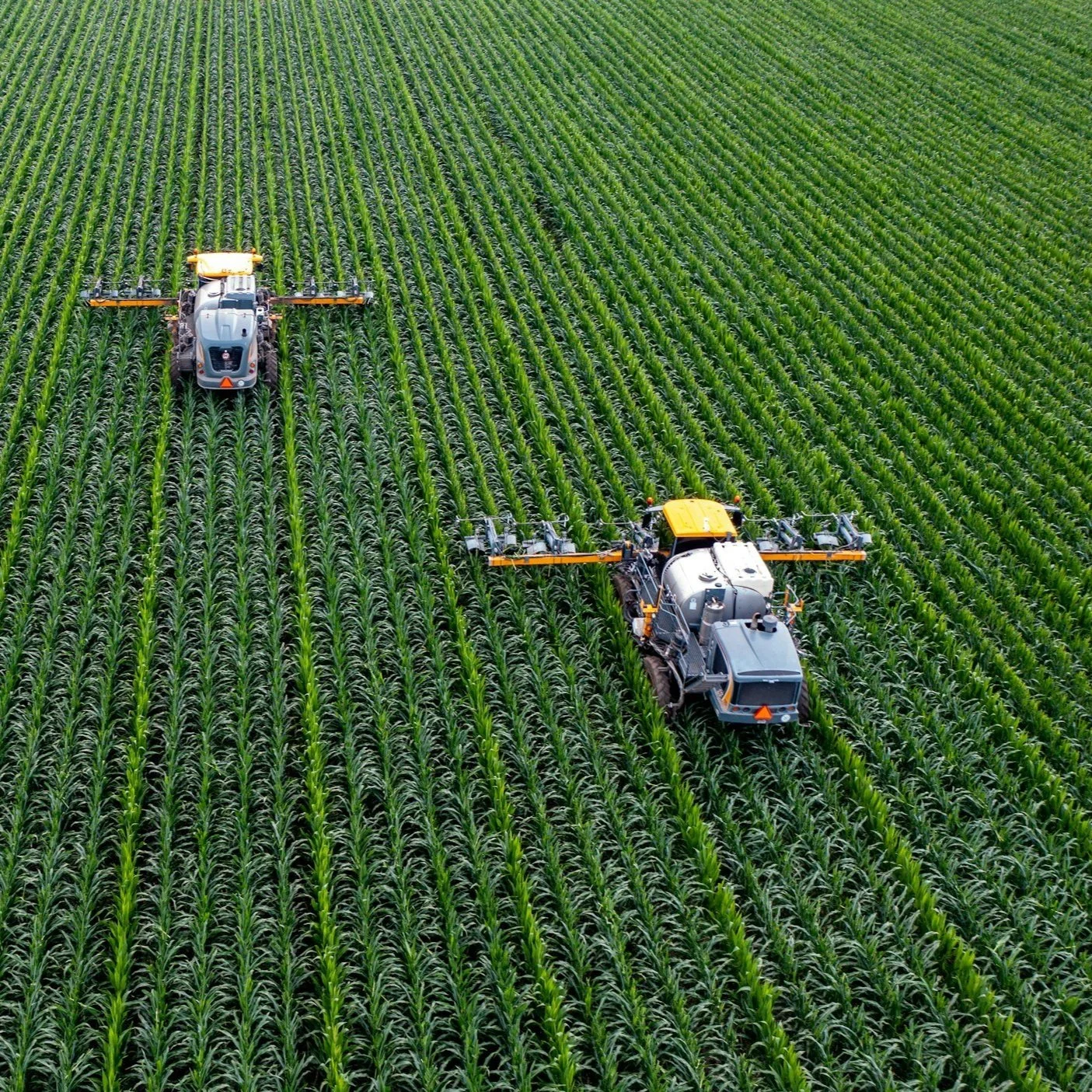No Farming, No Food
No Farming, No Food
-
No Farming, No Food -
OK, so let’s get the obvious out the way straight away. It goes without saying that of course, not having any farmers in the UK does not equate to no food being available. But what food is available will have been shipped in from around the world and we will have no control over the quality, standards or pricing being levied. Let’s dive into why I believe we need to show our support for British agriculture and home-grown produce.
Showing our support for British farming is essential for several reasons that cross over environmental, economic, and social factors.
In a nutshell, British farming plays a vital role in preserving the nation's food security, supporting rural communities, promoting sustainability, and maintaining the country's agricultural heritage.
Perhaps the most compelling reasons to support British farming, for me at least, is the need to ensure food security. By sourcing food domestically, we reduce our reliance on imports, which, as recent times have clearly shown, can be susceptible to disruptions due to factors such as international trade disputes, climate change, or geopolitical instability (i.e. wars). Supporting British farmers means fostering a more resilient food system, with locally produced food being more readily available through the seasons and better suited to our needs. Additionally, British farms are more often than not, held to higher standards of animal welfare and food safety, ensuring that the food we consume is of the highest quality. The same can not be said for many of the existing imports we already see coming into the UK.
Economically, British farming is a key pillar of the nation's economy.
I firmly believe there are people out there who see farming as a lifestyle choice, but the agricultural sector directly employs hundreds of thousands of people and contributes billions of pounds to the national GDP. By supporting British farming, we help to maintain jobs in rural areas, where employment opportunities can sometimes be limited. Farming also supports a host of other industries, things like food processing, retail, and hospitality. These interconnected sectors help create a thriving economy that benefits not just farmers, but the wider community, particularly in rural areas that, sadly, are more susceptible to deprivation. British farms are often family-run businesses and supporting them helps to preserve the livelihoods of generations of farmers who have dedicated themselves to the land, as well as skills handed down from generation to generation that, once lost, will never come back.
By supporting these farmers, we indirectly contribute to the preservation of the countryside, for the whole nation’s benefit.
Alongside that vital economic value created, British farming plays an integral part in managing the countryside and rural landscapes that define much of the UK’s natural beauty. Traditional farming practices help to shape the landscape, preserving habitats for wildlife and enhancing the enjoyment of the countryside for everyone.
The ongoing management of hedgerows, grasslands, and wetlands by British farmers contributes to biodiversity and supports local ecosystems. Farmers are custodians of the land they manage and in growing numbers implement more and more sustainable farming practices, from regenerative farming, organic farming, and agroforestry, which help protect the environment and assist in combatting climate change.
If we look at farming from a social point of view, supporting British farming strengthens communities.
Rural areas that rely on farming as a key industry are often faced with challenges such as depopulation and economic decline as youngsters leave the area to find jobs elsewhere. By investing in these communities and supporting local farming initiatives, we help to ensure that rural Britain remains vibrant and on a sustainable footing. Many British farmers are at the heart of their local communities work closely with them. This engagement helps to foster a greater understanding of where our food comes from and encourages a stronger connection between consumers and the land.
Final thoughts…
Last, but by no means least, by demonstrating support for British farming, we promote ethical consumption. As the public awareness grows about the environmental and social impacts of food production, choosing locally produced, British-grown food helps to reduce food miles, its carbon footprint, and environmental damage. Perhaps of most relevance though is the fact consumers can have confidence that British farming standards align with the highest possible values of animal welfare and environmental stewardship.
So next time you head out to do your shopping, take some time to think about the buying decisions you are making, and their implications. Supporting British farming is crucial, not only for the economic well-being of the nation, but also for the sustainability of our environment and the preservation of our rural communities. It ensures that we can enjoy high-quality, ethically produced food while safeguarding the beauty and health of the land for future generations. Think Global – Shop Local!




